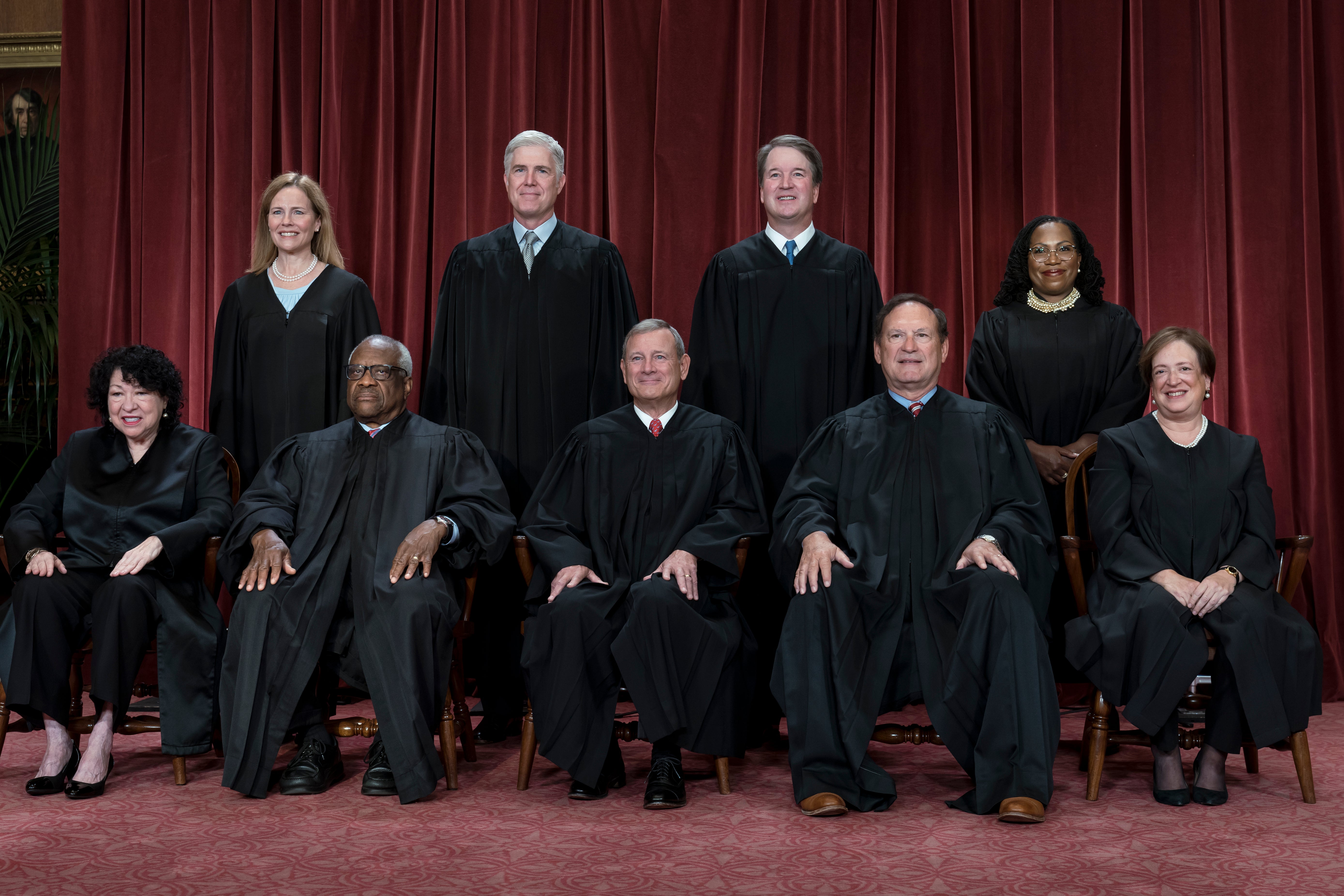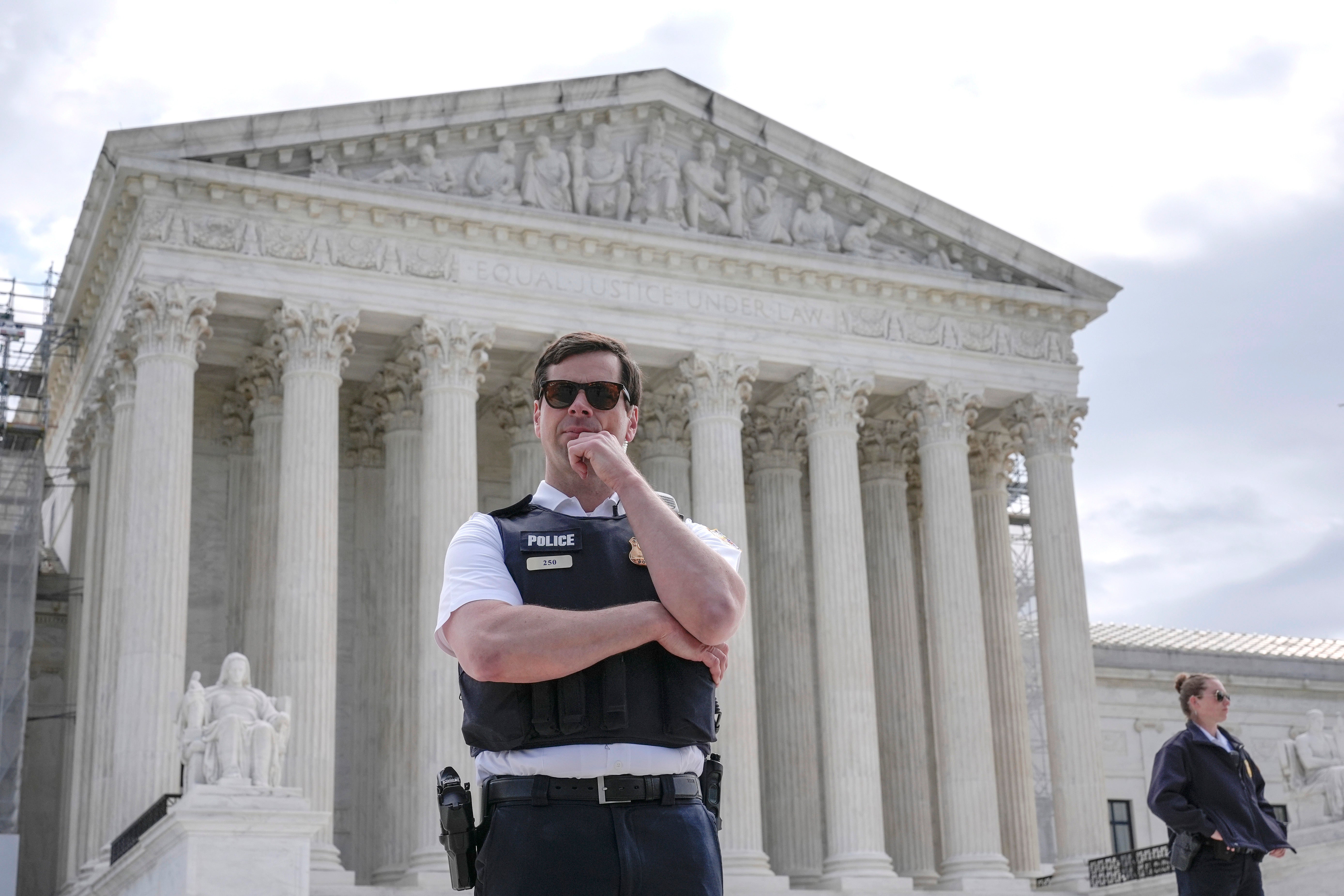Biden pitches biggest Supreme Court changes in 150 years. Could it actually happen?
Biden is asking Congress to pass a series of laws that would expand the court and issue term limits
Your support helps us to tell the story
From reproductive rights to climate change to Big Tech, The Independent is on the ground when the story is developing. Whether it's investigating the financials of Elon Musk's pro-Trump PAC or producing our latest documentary, 'The A Word', which shines a light on the American women fighting for reproductive rights, we know how important it is to parse out the facts from the messaging.
At such a critical moment in US history, we need reporters on the ground. Your donation allows us to keep sending journalists to speak to both sides of the story.
The Independent is trusted by Americans across the entire political spectrum. And unlike many other quality news outlets, we choose not to lock Americans out of our reporting and analysis with paywalls. We believe quality journalism should be available to everyone, paid for by those who can afford it.
Your support makes all the difference.President Joe Biden is calling for sweeping changes to the Supreme Court to restore trust and accountability amid a series of ethics scandals and unpopular rulings – but it’s unlikely those reforms will see the light of day.
On Monday, the president officially endorsed three major changes to the Supreme Court: enacting a new system in which a president appoints a justice every two years to serve for 18 years, implementing a binding code of ethics and adding a constitutional amendment to strip presidents of criminal immunity.
It arrives as the court is experiencing record-low approval ratings.
“What is happening now is not normal, and it undermines the public’s confidence in the court’s decisions, including those impacting personal freedoms,” Biden wrote in an op-ed for The Washington Post.
But the president’s bold proposal is likely to face an uphill battle – one that hasn’t been summited since 1869.

There is nothing in the Constitution that indicates the Supreme Court must have a certain number of justices or hold office for life. Instead, the Constitution says justices, “shall hold their offices during good behavior,”
Only Congress has the power to change the structure of the court, including how many justices serve and for how long, by passing legislation. To do so requires congressional approval in both chambers, which is unlikely given Republicans control the House.
The last major change to the Supreme Court was more than 150 years ago, when Congress passed an act formally adopting nine seats. Since then, multiple lawmakers, including former president Franklin Delano Roosevelt, have tried but failed to reform the court. In recent years, Democrats have pushed to add seats after conservative justices became the majority.
But those efforts haven’t gone anywhere. Now, it appears Biden is calling for even stronger reforms.

Biden is proposing a new structure in which a president appoints a justice every two years to serve an 18-year-long term. He said this would make nominations “more predictable and less arbitrary” while also preventing a single president from influencing the court.
Under the current structure, justices are appointed when a vacancy opens up. Often, that means, a justice must die or resign for a new justice to be appointed, making it a game of chance.
Donald Trump got lucky during his term and appointed three judges who joined the conservative majority of the court. That swung the court’s majority to the conservatives when it had been more balanced in previous years.
More than half of Americans support term limits for the court, according to polling from UMass Amherst.
The other proposed law would create a binding code of ethics that would require justices to disclose gifts, refrain from public political activity and recuse themselves from cases in which they have a conflict of interest.
The court currently has a code of ethics, but there is no legal mechanism to enforce it.

Biden’s suggestion arrives after a myriad of ethical scandals that began after ProPublica revealed Justice Clarence Thomas has accepted thousands of dollars worth of luxury vacations, private travel and tuition for his great-nephew from Republican megadonor Harlan Crow for more than two decades– and never disclosed it.
A closer inspection of the nine justices’ finances uncovered the ways justices benefited from their positions but did not disclose it. Justice Sotomayor earned millions from book sales, in part thanks to her staff encouraging schools that she spoke at over the years to purchase them. Justice Samuel Alito took a luxury vacation with a Republican donor who had a business interest in a case before the court but did not disclose it.
The revelations have led to deep public mistrust in the court.

Dick Durbin, chairman of the Senate Judiciary Committee, has already tried to fast-track a bill to improve transparency but Republicans have kept it tied up at the committee stage.
Democrat Alexandria Ocasio-Cortez introduced articles of impeachment in the House against Thomas and Alito for refusing to recuse themselves from cases with potential conflicts of interest. In a Republican-controlled House, it is unlikely the move will receive the majority vote.
Where Biden may face the most difficulty is passing a constitutional amendment – or a formal change to the Constitution.
The president pitched an amendment titled “No One Is Above the Law”, that would state the Constitution does not grant the president immunity from federal criminal indictment, trial, conviction or sentencing. It was inspired by the Supreme Court’s recent ruling in Trump v. United States where the court determined presidents have immunity from criminal prosecution when the alleged crime falls within the scope of official acts.
It is an ambitious pitch that will likely never come to fruition.
Amendments to the Constitution require a two-thirds vote of both the Senate and the House. It then needs to be ratified – or approved – by three-quarters of the states.
That means any of Biden’s proposed reforms that require constitutional changes are likely pipe dreams that will never become a reality.
Join our commenting forum
Join thought-provoking conversations, follow other Independent readers and see their replies
Comments